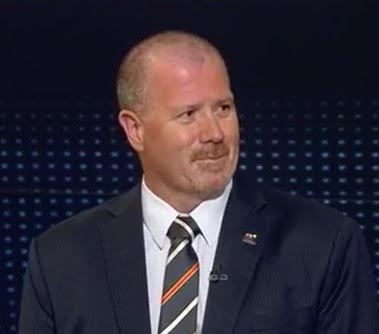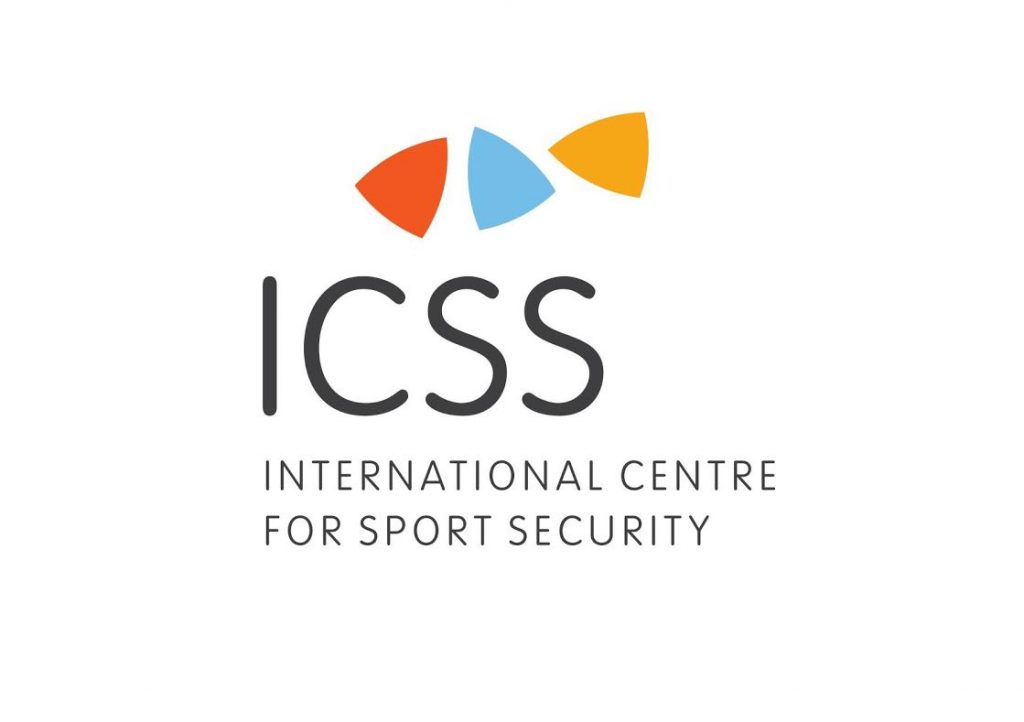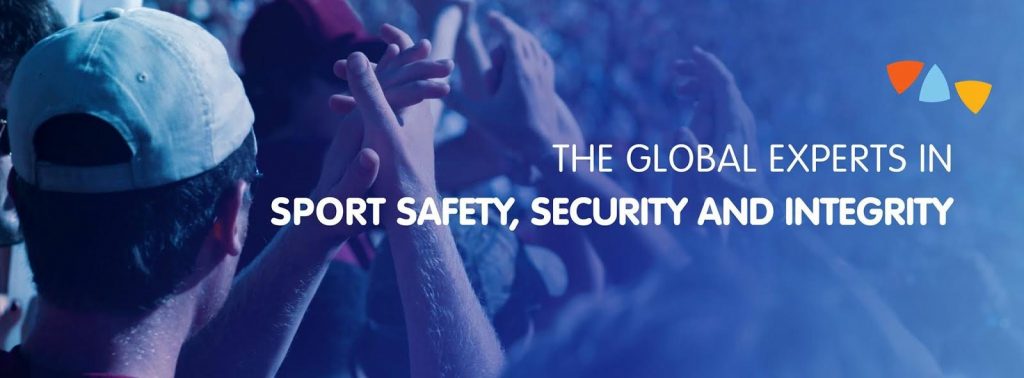- October 14, 2016
- Posted by: SportsV
- Categories: Features, Home News, Industry News, Interviews, News

In the following interview piece, we hear from Andrew Cooke (AC), Director of Security Operations at the International Centre for Sport Security (ICSS).
Firstly, can you tell us a little about you; your background, past roles in the sporting events and venues sector, etc?
AC: As Director of Security Operations at the International Centre for Sport Security, I lead the ICSS Safety & Security Operations project team in their work supporting and advising major sport events, governments and international federations in their security planning, assurance, training, readiness and implementation.
Having worked in the multi-disciplinary security, risk management and law enforcement sector for the last 25 years, I have previously helped to secure a variety of sports and international events including the 2015 AFC Asian Cup in Australia, as well as having worked alongside a number of international sporting bodies which have included Cricket Australia and Hockey Australia as their Security and Risk Consultant.
Outside of working in the sport security sector, I’ve also worked in strategic security industry, supervising and training teams across an array of security related functions, including Counter Terrorism, Hostage Negotiation, Crisis Management and Close Personal Protection.
Can you tell us a little about the ICSS and how it is assisting sporting events and venues?
AC: Established in 2010, the ICSS aims to help and support organisations in the area of sport safety, security and integrity.
This is done by working with and bringing together expertise from all sectors of the sports industry, including governments, law enforcement and sports organisations. At the ICSS, we provide a holistic and global approach to safeguarding sport, which is becoming increasingly important with globalisation on the increase and the broader economic, political and security challenges now facing many countries.
As part of my remit as Director of Security Operations, one of the core areas of expertise the ICSS offers is assisting federations, sporting organisations and stadium owners ensure the highest levels of safety and security at their major sporting event or sport facility.
Our sport safety and security experts have assessed and secured some of the largest sporting events and most recognisable venues in the world, using innovative strategies, practices and techniques and we support our partners in delivering a global, integrated approach to sport safety and security.
Some of the organisations we work with on their safety and security include the Qatari Super League (QSL), Qatari Football Association (QFA), Asian Football Confederation, the Supreme Committee for Delivery & Legacy (SC), and the Saudi Arabian Football Federation (SAFF) to name a few.
In regards to your role as Director of Security Operations at the ICSS, can you describe a typical week and what your key duties include?
AC: It’s varying and no two days are the same, which is the best challenge of the position.
Dependent on the events that are happening around the world, I could be deployed to review and observe the safety and security operations of these events to identify best practices and lessons identified.
Other functions that vary from week to week depending on client work may include: advising clients on current security issues that may affect their operations, development of security assurance and readiness plans, threat and risk assessments, venue security master planning and design, major event safety and security operational planning and delivering training for sports safety and security professionals.
How, if at all, do any of your previous roles and/or experiences help you in this position?
AC: These previous experiences have and continue to play an important part in my work at the ICSS and within the sport safety and security sector.
I’ve been fortunate to work in a range of countries and regions, experiencing different working cultures and security environments. Each environment is completely different and presents different challenges.
When working internationally, these experiences have also underlined the important role in understanding the importance of being adaptable and open-minded and, at the same time, keeping one eye on the broader international environment.
How can sporting events and venues ensure that they have the most robust safety & security plans in place?
AC: When it comes to major event master planning, integration, communication and intelligence are the keys to success; therefore the ability to learn from previous events and the accumulated knowledge and insight that comes with past experiences is vital in this area.
That is why a global, coordinated network that values information sharing and supports internationally recognised standards of best practice in sport safety and security is required.
Key government and law enforcement agencies, intelligence, private security, police and counter-terrorism units around the world should all be identified from the outset and integrated from the start across all areas of an event to ensure an effective security concept, as well as helping to test operational plans.
It’s impossible to guarantee 100% security. However, risks can be minimised as low as reasonably practicable, and the chance of swift and effective response will only be enhanced if all areas of operations are tested, tested and tested again.
How important is ongoing training and keeping up-to-date regarding all the latest products, services, solutions and best practices?
AC: In this day and age, technology and the role it can play in helping venues secure their event is essential.
In addition, it is crucial to ensure that staff are properly trained and have a complete understand why they are doing what they do.
One challenge for major events at the moment is ensuring that their security staff are properly trained and are properly equipped to do their job effectively. Quite often, what you find is security staff are hired on temporary, part-time and low paid contracts and lack experience dealing with often complex and highly pressurised situations.
One of the main lessons for sport going forward should be the need to improve global standards amongst those employed to secure events on the ground and ensure proper training and education between sports and major event organisers.
It is important to me that we continue to identify key issues to further training standards, developing best practice and other innovative resources, as well as playing a role in establishing formal consultation groups that help exchange of information between different sports and events.
As we witnessed with the attack on France’s Stade de France, sporting events and venues have become targets for terrorists. How can major sporting events and venues best protect themselves from such attacks?
AC: We have recently seen that security is becoming increasingly important in the planning and staging of sporting events and it will continue to do so in the future. No city or venue is exempt from the local and global threats that it faces as it prepares to host a major event.
A flexible, well-planned, integrated approach involving intelligence sharing amongst all public and private stakeholders and one which is able to adapt and evolve in a changing situation is crucial to an effective security response.
It is important that the integration of all functional areas and stakeholders are also factored in so that clear roles and responsibilities can be identified and the relationship of each stakeholder within the safety and security strategy and framework can be fully understood by all parties at the earliest possible opportunity.
This can be achieved through comprehensive threat and risk assessment and the subsequent risk management plan.
The number one priority for anybody staging an event or designing a venue that should prioritise safety and security. Security must be approached as a comprehensive, multi layered, multi-faceted enterprise; it absolutely cannot be an afterthought.
Can you share your thoughts on 1-2 of the latest hot topics affecting safety and security at sporting events and sports venues?
AC: Firstly, technology and how it benefits the way sport events are secured is one area of particular focus at the moment.
In addition, we are living in age where digital and mobile technology is revolutionising major sport events. Whilst this innovation is exciting and benefiting how people around the world consume sport, it also presents many security challenges.
As a result, cybersecurity and data protection will be another area of particular focus I think for sport security professionals in the short to medium term and is something the ICSS is looking into at the moment.
You regularly publish blogs and articles on safety & security. How important is it that industry peers share their experiences and knowledge?
AC: This is vital. As I mentioned previously, it’s important that those working in the industry share their knowledge and experiences. In my position and standing within in the sport security industry, I believe it is critically important that we all work towards developing a worldwide and structured exchange of knowledge, information and international best practice standards. I believe it is only by sharing of information and working together with other organisations, governments and law enforcement agencies around the world that the industry can acquire the breadth of knowledge necessary to combat the many and varied threats to venue and event security in today’s world. This is something that the ICSS actively encourages through its international network.
And, finally, what kinds of developments can we expect to see in the sector in the next 12-48 months? Whether in terms of emerging threats (from the likes of drones) or innovative solutions / technologies that will revolutionise the sector?
AC: Security technology, both software and hardware, will be an obvious point of interest. Areas like facial recognition, behavioural analysis and biometrics around ticketing are already areas that are being explored in the sports industry and are growing area of interest for security professionals.
In addition, given the commercial interest in social media and digital technology in sport at the moment, I think ‘intelligent’ software and data protection will be two areas of interest for security professionals.
Emerging threats will continue with greater use of drones, 3D Plastic Weapons, lone wolf attacks and insider threats. But, the greater threat will come from the adversaries targeting locations such as Fan Parks and Open Events, which I call soft ‘targets’.


Andrew Cooke is Director of Security Operations at the International Centre for Sport Security (ICSS). For further information, visit: http://www.theicss.org
#SportsVenueBusiness

